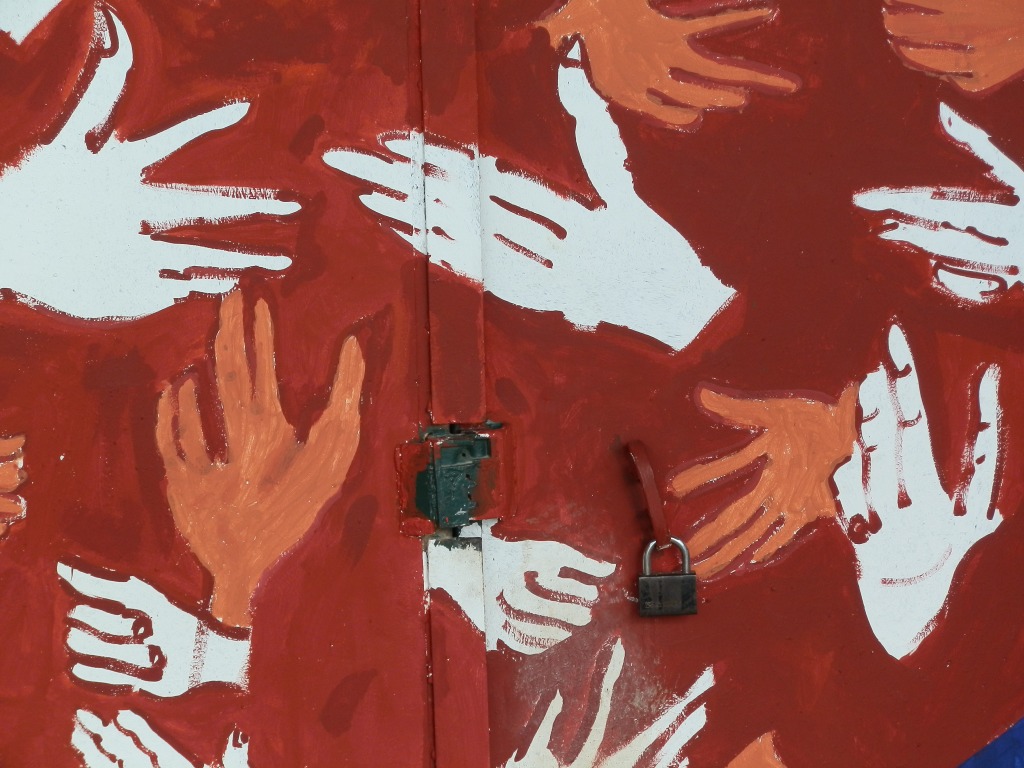
by Jonathan Kuttab, Friends of Sabeel North America
The events of the last few days in Israel and Gaza have shattered the long-held assumptions of many observers, working to shift many popular paradigms. Amidst the devastation, there does remain reason to hope that these events will shake up the status quo and lead to major changes. Even the taking of captives could serve as a catalyst for the opening of negotiations and contacts between Hamas and Israel. The astonishing and unexpected military success of Hamas in breaching the separation wall and in shifting the battle over the weekend to the enemy’s population could potentially even help reduce the power imbalance and lead to genuine talks.
For one thing, the fighting mostly took place inside sovereign Israeli territory and amongst its civilian population. This has never happened since the creation of the state in 1948, whereby the Israeli army successfully ensured that for all the wars with the Arab World the fighting (and the vast majority of destruction, civilian casualties, and human suffering) occurred within Arab territories and amongst the Arab population. It was Israeli soldiers who entered Arab houses, ordered kids out of their beds, kidnapped them and took them in their jeeps, controlled their lives, and triumphantly returned to their own homes at the end of hostilities.
My heart goes out to the families who lost their dear ones and particularly to those who still do not know the fate of their loved ones, who may be dead, injured, or held captive under the power and mercy of their enemies.
While watching Israeli TV in Hebrew (simultaneously with Palestinian sources in Arabic) I heard the stories of Israeli families who lived in fear under lockdown, without electricity, and who attempted to call for help but no responsible agency would answer or come to their rescue. It seems, those Israelis living a few kilometers from Gaza were given, for a few days, a taste of what Gazans experience all year round.
I mention this not to provide any excuse or justification for the actions of armed elements or to compare the personal sufferings of Palestinians in Gaza with those of Israeli civilians. Nor do I wish to decontextualize these events from a decades long history of Palestinian dispossession at the hands of Israel. My point is that war, occupation, and violence are awful, and the suffering of civilians is inexcusable. It is vital that each party comes to understand and begin to empathize with the other, work to put an end to this awful situation, and seek an authentic peace built upon a foundation of justice, one that all deserve.
Unfortunately, the emphasis instead has been to double down on the assertion of power and violence, seeking ways to maximize the suffering of the other in order to achieve “victory.” This is true for Palestinians, the weaker party, who tasted for the first time a small measure of victory, even as they realize what a heavy price they will be made to pay for it. Among them, the psychological high of their astonishing accomplishment in breaching the impenetrable wall and wreaking havoc on their vastly superior tormentors is intoxicating, and much more appealing than the call for principled nonviolent struggle. It is also true for the Israelis, who are openly flouting any restraints of morality, international law, proportionality, or public opinion as they bring their vastly superior force to pummel the Gaza strip, cutting off entirely their water, fuel, food, electricity, and destroying their boats, mosques, buildings, this time without even bothering to warn populated residential areas. They still believe they can “bring Hamas to its knees” through sheer military might and bend them to their will.
Against this tsunami of blood lust, I raise my voice in calling for a just peace. It’s at times like these when we need to remember Jesus’ teaching to “love thy neighbor as thyself.” The prince of peace calls us, against our natural impulses to hate, fight, and kill our enemies, instead to understand, empathize with, and, yes, even love them.
This is not an empty hope. This week’s events do break an unsustainable status quo, challenging everyone to think beyond the current paradigms. They challenge a status quo in which Israel felt it was unassailable, that it was unnecessary to even deal with the Palestinians, and that it could achieve normalization with the Arab world without the Palestinians. Also, the existence of a large number of hostages (for all the human suffering involved) means that it is necessary to engage in some form of negotiations to accomplish their release, probably in return for releasing Palestinian prisoners, of whom 1300 are administrative detainees, held without charge or trials, who are often referred to by Palestinians as “kidnapped hostages.” Finally, the absence of any realistic plan to deal with Gaza militarily may convince enough Israelis to deal with it in a different matter.
The truth is that there is no military solution, and once that becomes clear to one and all, perhaps we can finally decide to give peace a chance. Perhaps if we spend at least a little time trying to see things from the perspective of others and show a bit of empathy, we can be closer to a solution, and the effort will certainly be rewarded.